

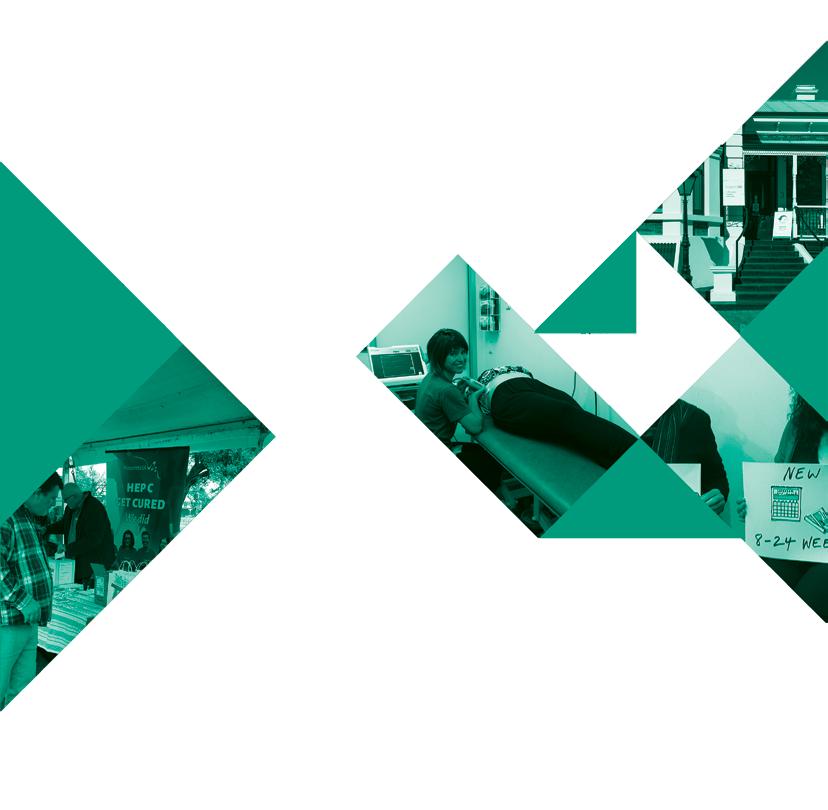
ANNUAL REPORT 2018–19
2
In 2018-2019, Hepatitis SA had a more successful year with media, thanks to some of our excellent speakers. This began with a World Hepatitis Day (WHD) interview/article with Jo Sloan in the Advertiser, an ABC radio interview with Lisa Carter, and the sharing of WHD social media posts. Then in the early part of 2019, the South Australian roll-out of the Hepatitis Australia national Test. Cure. Live. campaign occurred, promoting hepatitis C testing and treatment to men over 45 years of age in suburban Adelaide. In this campaign Howard Jillings and Education Coordinator Jenny Grant gave an excellent interview on 5AA, and Howard’s online interview about being cured also received a very good response.
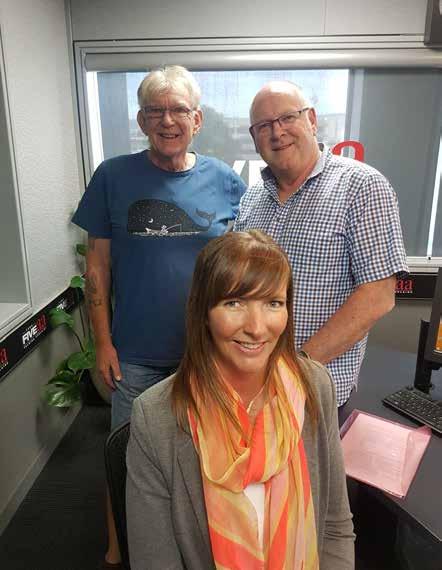
At the service delivery level, our positive speakers and peers with a lived experience of a hepatitis C cure, continued to share their stories with a diverse range of individuals and groups, including South Australian workforces. Despite the wide promotion of the hepatitis C cure, numbers engaging in treatment continue to fall across South Australia (and Australia) , putting in jeopardy the elimination by 2030 goal.

Chairperson’s Report
Another
blow
to
this goal
in South Australia was the announcement of funding cuts to the non-government STI & BBV sector. Hepatitis SA’s core funding for its viral hepatitis program from the South Australian department of Health and Wellbeing was cut by 8% at the beginning of 2019. For the first time however, a longer contract period of 5 years was offered
—which was some good news amidst this gloomy funding outlook.
The next iteration of the National STI and BBV Strategies were released this year, however, no new national funding for service delivery in the states and territories has been announced, which is of particular concern in relation
3
Howard Jillings (left) and Jenny Grant with 5AA’s Alan Hickey
to the hepatitis B response which lags far behind the other blood borne virus responses.
On the funding upside; in October the Burnet Institute announced funding of over 11 million dollars for a period of three years for the Eliminate Hepatitis C (EC) Australia Partnership Project from the Paul Ramsay Foundation. Hepatitis SA is working with our local partners to plan project proposals for South Australia over the coming years.
A significant development at Hepatitis SA this year was the employment of a parttime nurse to deliver viral hepatitis screening clinics to targeted multicultural communities, in partnership with local clinicians. The first of these clinics occurred in June 2019 and monthly clinics are planned for the rest of 2019.
Hepatitis SA educators and hepatitis C treatment peer educators continued to visit all South Australian prisons during the year, providing services to prisoners and correctional officers. The peer educators also partnered with SA prison health staff and the community viral hepatitis nurses to provide Liver Health Days aimed at engaging prisoners in BBV testing, HBV vaccination and HCV treatment. Additionally, a number of Prison Health Expos were attended by Hepatitis SA staff throughout the year to promote hepatitis C awareness. Hepatitis SA also attended meetings with
SERCO to plan services for staff and prisoners when they take over operation of the Adelaide Remand Centre early in the new financial year.
Hepatitis SA was also pleased to be invited to be a partner in the Kirby Institute’s TEMPO Study, which was successful in its application for a National Health and Medical Research Committee (NHMRC) grant to investigate the impact of new hepatitis C testing technologies on treatment uptake amongst people who attend needle and syringe programs. We look forward to commencing work on this study with Kirby in 2020.
Much of the usual Board business continued throughout the year, overseeing the scheduled review and updating of organisational policies, and monitoring the risk management register –noting a few updates to internal systems made for protecting organisational property. The Board also began the development of the next Hepatitis SA Strategic Plan.
Thank you to all Hepatitis SA staff and volunteers for your hard work and I congratulate you all on your many achievements during the year. In November, Education Coordinator, Tess Opie resigned and board members, Kirk Hicks, Ratan Gazmere and Lindsay Krassnitzer also left the Board at the 2018 Annual General Meeting (AGM). Our thanks must go to all
of them for their valuable contributions to Hepatitis SA over a number of years.
I would like to welcome Julio Alejo and Michael Larkin who joined the Board at our 2018 AGM and thank them and the remaining members of the Board for their support during the year.
I would like to finish by thanking all our partner organisations who supported our work this year and our main funding administrators, the staff at the STI & BBV Section at the South Australian Department for Health and Wellbeing, and Drug and Alcohol Services South Australia.
Arieta Papadelos Chairperson
4
CNP Peer Projects Report
Hepatitis SA Clean Needle Program (CNP) Peer Projects employs people who have significant knowledge or experience of injecting drug use as peer educators who are placed at high volume CNP sites across metropolitan Adelaide to provide a range of harm reduction services to people who inject drugs. In addition to reducing barriers to CNP access, Peer Educators are a source of information for workers at the CNP sites where they are placed.
Full-time and Sessional CNP staffing
Hepatitis SA CNP Peer Projects commenced the year with Peer Educators placed full-time at Anglicare, Salisbury; Noarlunga Health Precinct, Noarlunga; and Wonggangga Turtpandi Aboriginal Health Service, Port Adelaide. In late September Anglicare closed its Salisbury service due to unforeseeable circumstances. The Salisbury service, including the peer CNP service, relocated to Anglicare Elizabeth Mission in November 2018.
Sessional (part time) Peer Educators provided CNP services at Nunkuwarrin Yunti, Adelaide; Drug Arm, Warradale; DASSSA Northern Services, Elizabeth and Streetlink, Adelaide.

Fixed site and sessional Peer Educators distributed 1.2 million new syringes during 18,198 client interactions (13,114 male; 5,084 female). About 15% of clients identified as Aboriginal and/or Torres Strait Islander with Streetlink reporting the highest proportion of ATSI client interactions (33%). For every client accessing the CNP, 2.5 other people who inject drugs indirectly accessed clean injecting equipment. Most (62%) CNP clients reported using methamphetamines and 18% reported using heroin. The proportion of clients using performance and image enhancing drugs (PIEDs) was about 9% although this varied at different CNP sites, for example at Anglicare Elizabeth Mission 33% of client interactions were for equipment for PIEDs use.
Peer Educators provided information/peer education during 3,417 client interactions and provided intensive support on 591 occasions. Information and support was provided for a range of issues, primarily vein care and vein access, swabbing to reduce bacterial infections, and filtering.
After Hours CNP
This year CNP Peer Projects continued the after hours
placement of CNP peers to ensure a peer CNP service was available outside of business hours. The after hours peer CNP services were provided at DASSA Central (initially Thursdays 5pm-9pm and later Saturdays 9am-12.30pm); Uniting Communities Hendon (Wednesdays and Thursdays 5pm-9pm and Saturdays 11am-4pm); and DASSA Northern (Mondays 5pm-9pm).
Peer Educators providing after hours CNP services distributed 60,066 clean syringes during 722 client interactions (485 male; 327 female), an average of 86 syringes per interaction. More than half (60%) of after hours CNP clients reported using methamphetamine while about 24% reported using heroin.
Workforce Development for the Sector
The Coordinator and Project Officer provided 10 harm reduction workforce development activities to 116 CNP workers, AOD workers, peer workers, mental health workers, students, nurses and Aboriginal health workers. Topics included Vein Care; CNP Training; Safer Injecting Overview; CNP Peer Projects Overview and Injecting
5
Equipment. Workshop and information session participants came from a range of organisations including: DASSA, Uniting Communities, Hepatitis SA, Drug Arm, Relationships Australia, Aboriginal Health Council of SA and Flinders University (students).
The Project Officer facilitated 3 SALEN (SA Lived Experience Network) Forums, attended by 31 peer/lived experience workers and volunteers. Participants’ organisations included Life Without Barriers, Mind Australia, Centacare, Psychmed, Cheltenham Place, DASSA Community Participation Program, Sonder and Uniting Communities. Feedback from participants has been very positive with participants stating that this is the only forum of its kind where peer workers can get an opportunity to debrief, network and share experiences.
In addition to formal workforce training, Peer Educators at fixed and sessional CNP sites provided CNP training to 63 paid staff, volunteers and placement students at host sites, including conducting CNP inductions to new casual Hepatitis SA CNP Peer Educators.
Community Engagement
Safer Drug Use information sessions were held at the Adelaide Women’s Prison – 2 sessions were delivered to 20 female prisoners as part of the ‘Keeping
Safe’ Program delivered collaboratively with the Hepatitis SA Education team, Legal Services Commission, Northern Domestic Violence Services and Housing SA. There was engagement with 143 male remand prisoners at 2 Adelaide Remand Centre Men’s Health Expos. At both prisons there was a focus on providing education on the SA Post Release Prisoner Project, opiate overdose, methamphetamine toxicity and accessing the overdose reversal drug naloxone.
A Liver Health and Hepatitis C information session was held for 13 clients who access DASSA Northern CNP and Anglicare Elizabeth Mission CNP. A raffle and treatment promotion campaign was held For World Hepatitis Day (WHD) with over 100 clients participating in the raffle and receiving WHD related giveaways.
Fibroscan clinics were held at DASSA Central, Anglicare (Salisbury and Elizabeth Mission), Noarlunga Health Precinct and Wonggangga Turtpandi Port Adelaide CNPs. Fibroscan clinics provide CNP clients with improved access to HCV treatment and peer support. A total of 69 CNP clients living with hepatitis C received a fibroscan.
SA Post Release Prisoner Project (SAPRP)
There is evidence that the first few weeks after release from prison are a high risk period for overdose and
other drug related harms. To encourage post release prisoners to access harm reduction information, specialist equipment that usually has a cost attached was available at no cost from peer based CNPs, to people who had been recently released from prison.
There were 43 male and 8 female post release prisoners who engaged with the SAPRP project (41 first visits and 10 return visits) at 6 CNP sites – Noarlunga, DASSA Northern, Port Adelaide, DASSA Central and Streetlink. Free specialist equipment given out included 211 sterile water ampoules, 107 wheel filters and 67 sterifilts. The majority of SAPRP clients were provided with peer education on overdose prevention/response and accessing naloxone.
I would like to acknowledge the CNP Peer Projects team who have worked so hard throughout the past year and have made the utmost effort to ensure that CNP clients were not adversely affected by the site changes to CNP services.
Thank you Andrea, Anne, Bernadette, Hayley, Jai, Justin, Kylie, Margie, Mark B, Mark T, Nikkas, Penni, Phil, Sue and Troy
Carol Holly Coordinator
6
Education Program Report

2018-2019 was another wonderful year for the Education Team. Even though we said farewell to Tess Opie who had been with Hepatitis SA for over 6 years, and Nicole Taylor took another position at Hepatitis SA for 12 months, and thus we were the equivalent of 1FTE down for most of the year, the team still managed to provide significant numbers of both community and workforce education sessions.
Community education
The team provided, 87 viral hepatitis education sessions to 878 community members. Participants of community education sessions predominantly included people affected by alcohol and other drug issues, young people (including those in the juvenile justice system), Aboriginal people,


people from culturally and linguistically diverse backgrounds, people affected by mental illness, people experiencing homelessness, and people in custodial settings.
As well as this, the Education team and the Hepatitis C Treatment Peer Education Team attended 8 health expos where 497 people were directly engaged –answering questions to a hepatitis quiz.
Particular highlights of the community education program for this reporting period included:
• Securing a grant from the Department for Correctional Services, in partnership with the Aboriginal health Council of South Australia (AHCSA) to bring indigenous theatre company Ilbijerri to Adelaide to perform their play ‘Viral: Are you the Cure?’ The play was performed 6 times over 4 sites; Adelaide Youth Training Centre, Mobilong Prison, Tauondi Aboriginal College and Yatala Labour Prison. There was some excellent feedback from the audience members including; ‘I only came for the coke and popcorn, but this was the best thing I’ve seen.’, ‘I loved
it, the show gave me goosebumps’.


• Implementing Hepatitis Australia’s national Test. Cure. Live. campaign across Adelaide, promoting hepatitis C treatments to those who may not have heard of them or even been tested. Particular highlights from this campaign were, firstly: a woman who saw the education team setting up for a Liver Health Day, approached and asked to be started on hepatitis C treatment. The nurse who was there on the day was able to get the work ups done and start her on treatment; and, secondly: a radio interview conducted on 5aa with an educator and lived experience volunteer, Howard, where the presenter made the interview into a real conversation and phone calls to the Hepatitis Helpline increased as a result.
Workforce education
This year the Education Team delivered 115 viral hepatitis workforce development sessions to 1,577 participants across a range of workforces. These included Clean Needle Program staff, Pharmacy sector, Aboriginal Health, South Australian Prison
7
Learn about viral hepatitis, and join our general knowledge trivia quiz. Your chance to win a prize! Eat chocolates! with Hepatitis SA at APC Monday, 1 April
Health Services, Serco Officers, Northern Adelaide Local Health Network Mental Health Services, SA Forensic Mental Health Services, SA Mental Health Rehabilitation Services, workers within the beauty industry, Environmental Health Officers and Immunisation Officers at local councils, as well as nursing and allied health staff at metropolitan hospitals, regional hospitals, and community and Aboriginal Health Centres. Ongoing work with other workforces included South Australia Police, Department for Correctional Services, and the Metropolitan Fire Service.
Particular workforce highlights included:
• 12 sessions for 192 local council staff at Prospect Council, City of Charles Sturt, City of Playford, Barossa Council, District Council of Mt Barker, and Tea Tree Gully Council
• 11 sessions for 277 Department for Correctional Services workers at Yatala Labour Prison, Port Augusta, Mount Gambier, and the Correctional Officer Training Program as well as SA Police at Sturt LSA and Mount Gambier
• 16 viral hepatitis education sessions to 120 participants to staff at the following hospitals: Barmera Hospital, Gawler Hospital, Lyell McEwin Hospital, Angaston Hospital, Maitland Hospital, Modbury
Hospital, Loxton Hospital and Berri Hospital
Riverland Blitz
This year, the Education Team also implemented an educational blitz of the Riverland Region. The aims of the Riverland Blitz project were to:
• Provide information and assistance to local health and community service professionals and services to increase hepatitis C testing and treatment of the affected population within the Riverland area
• Provide information to people living with or at risk of hepatitis C on the benefits of testing and treatment, and support their linkage to care.
The Education Team also disseminated information to the wider Riverland community to promote an enabling environment for people to seek testing and treatment. Results of the project included 4 consultations with local services, prior to project implementation; and 13 workforce sessions for 79 workers, all conducted over the two-day visit. The sessions were carried out across a variety of towns including Waikerie, Berri, Barmera and Renmark.
1 community awareness activity was conducted at Aboriginal Community Connect, and targeted resource distribution was provided to 9 government and non-government services across the region.
Easter at APC!
Join Hepatitis SA in making rock-art and eating hot cross buns!


B Friday, 12 April
C Men’s session: 2.30–3.30pm
D Women’s session: 3.30–4.30pm
HepTALK Program
The HepTALK program also had a productive year, with two new speakers who were recruited in the previous year both getting a chance to tell their story in front of a 500-strong audience at the Australasian Viral Hepatitis Conference in Adelaide in August 2018. Additionally, positive speakers presented at 26 sessions across workforce and community groups.
•
Thank you to all our speakers for their ongoing support and enthusiasm and congratulations to my colleagues in the education team, who continually put in 100% effort when it comes to session delivery, knowledge and support for each other.
Grant Coordinator
8
Jenny
Information & Resources Program Report
The Information and Resources (IR) program develops and produces Hepatitis SA’s information material – both printed and online. This includes production of targeted information packs for community and health workforces, including GPs.
We manage the organisation’s social media, database design, resource orders and regular information mail-outs. The IR team handle Hepatitis SA’s website, HepSAY blog, and accounts on Issuu, YouTube and SoundCloud.
We also maintain Australia’s only specialist hepatitis library which catalogues physical and readily accessible online hepatitisrelated resources.
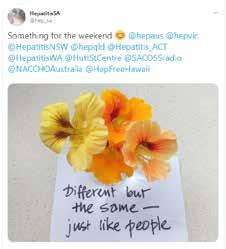
Part of the IR program’s role includes liaising with colleagues and workers in partner organisations to identify gaps in information resources, and responding where possible. We also liaise with media as needed.
Besides on-going activities, the IR program actively supports one-off projects such as the Hepatitis B Community Education projects and the Test. Cure. Live. campaign. A major part of this Hepatitis B Project included a Chinese language hepatitis B information
service, which continues after the original project concluded.
New Resources
A key resource developed this year is Eating Low Salt – Tips for reducing sodium for people with liver disease This booklet is based on HepSAY posts, feedback from Calming the C Support Group members, support workers, viral hepatitis nurses, advanced liver disease nurses and a senior dietitian. (issuu.com/hepccsa/ docs/low_salt_20190807_ web)
Dr Liver’s Hep B Story is an engaging comic with an East Asian appeal. The original Korean publication was developed by Korean Health Assist supported by Hepatitis NSW. We translated and adapted it for a Chinese audience, and adapted the Korean and English versions to include South Australian information. Thank you to Mina Kim from Hepatitis NSW and Korean Health Assist for her help and support. (issuu.com/home/ published/dr_liver_s_hep_b_ story__web_)
As part of our 2018 World Hepatitis Day campaign, Hepatitis SA created concise, easy-to-navigate web pages on hepatitis C treatment and hepatitis B testing; and produced web banners, fence banners, posters and
pamphlets to promote the same messages.
In 2016, we got community feedback on the Little Book of Hep B Facts, with the aim of modifying content and design if needed. Consultations were held with the African, Bhutanese, Chinese and Aboriginal communities. The updated and redesigned edition of this resource was completed in 2019.
Four issues of Hepatitis SA Community News were published between October 2018 and early July 2019 and 3,450 printed copies and 1,570 electronic copies were distributed.

Online resources
Thirty-five new articles were published on the Hepatitis SA website with other permanent articles such as Clean Needle Program sites and operating times being regularly updated.
The post which got us the most profile visits
9
The Hepatitis SA Twitter account posted 357 tweets in this financial year. This was less than last year but we nevertheless had a 36% increase in impressions. Our followers continue to grow slowly but steadily with 94 new followers.
Hepatitis SA Facebook followers increased from 146 to 219. We made 351 posts which Facebook served to 33,165 people. The posts received 48,850 impressions and 3,167 engagements (likes, clicks, shares).
We were a part of the Hepatitis Australia Test. Cure. Live. campaign promoting hepatitis C treatment to males over 45 years of age, living in outer metropolitan areas of Adelaide. This campaign provided funds for boosting Facebook posts to the targeted audiences. While this did increase our reach and impressions, there was also a significant increase in reach and impressions for our unpaid content.
Our blog page—HepSAY— published 12 new blog articles and was visited by 2,784 users of whom 99% were new There were 3,305 sessions and 4,401 page views.
Information requests
There were 20 requests for information/resources related assistance, including requests to the library for help in sourcing specific articles and resources.
Other requests included the use of our hepatitis C self assessment tool in a new website, hepatitis B treatment information in Chinese, help in accessing information from the viral hepatitis conference and an Aboriginal peer worker looking for resources suitable for her clients.
Hep B Information Service
The community-funded hepatitis B information service for the Chinese community recorded 635 information contacts mostly around testing, treatment and hepatitis B related services. More than 64% of the contacts were female, 44 were hepatitis B positive, 12 had isolated core antibody and 22 had family members or friends who were hepatitis B positive.
Library
The Hepatitis SA library currently holds over 2,120 titles, the majority of which
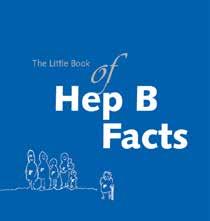
Hep B Information Contacts
are readily available online. Our library service continues to respond to search requests and send out electronic alerts to organisations, people in the community and workforce. Special focus alerts are also sent out to targeted services. Focus topics this year included: Real people real stories, Peer worker resources and Psychological impact of cure.
World
Hepatitis Day 2018 Small Grants
Six groups applied for Hepatitis SA’s World Hepatitis Day 2018 small grants: Uniting Care New Roads, Adelaide LETS, St Bernard’s Volleyball Association, Didis Group, Uniting Care Murray Bridge and the Vietnam Veterans Association. Five were accepted. Activities included
10
Age range No. Contact Method No. Hep status No. 20s–30s 102 WeChat 159 B+ 44 40s–50s 167 Phone 286 unknown 375 60s–70s 249 Email 1 neg no immunity 143 80s+ 3 Face to Face 6 neg immune 61 unknown 114 social media 1 isolated coreAB 12 under 20 0 event/activity 170 info session 12
quizzes, healthy lunches and information sessions.
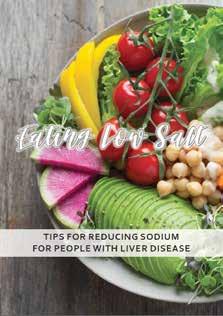
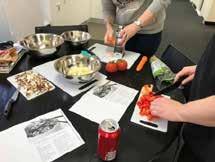
Information distribution
We distributed 51,622 resource items of which 5,840 went to correctional services and prisoners, primarily through our education team and peer educators. We sent out 16 electronic alerts: five regular magazine mail outs, four library alerts forwarded to community members and seven one-off information alerts. There are over 560 organisations and 550 individuals on our mailing lists.
Our regular alerts provide links to the latest magazines
from Hepatitis SA plus those from Hepatitis WA, Hepatitis Victoria, Hepatitis NSW and the World Hepatitis Alliance, if available. One-off alerts included information about My Health Record, new resources from Hepatitis SA, upcoming meetings and our annual report.
Media and promotion
Media and promotion work is opportunity-based—this year mainly through the Test. Cure. Live. campaign. We’ve also had some media coverage for our hepatitis B community projects in Chinese newspapers and Vietnamese radio.
Hepatitis SA initiated and/or participated in 106 events and activities where information was disseminated through talks, presentations and printed materials and in some cases, talks and presentations. These included community events, open days, cultural activities and classes. A total of 7,780 resource items were distributed.
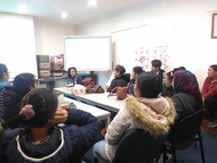
Other major activities

The IR team provided design and resource production support for the roll out of
the national Test Cure Live campaign in South Australia, managed the Hepatitis B Chinese Community Education projects and developed follow-on plans for hepatitis B work with that community. Resources arising out of these activities included a Cantonese animated video promoting hepatitis B testing and a clinical governance flowchart for GPs working in hepatitis screening clinics.
Volunteers

We are lucky to have a hard-working, long-term volunteer who continues to come in weekly. In this financial year, we also had a short-term volunteer working specifically on the Chinese community education projects. Without them, our capacity would have been much reduced. We would like to acknowledge and thank Sandy and Vivien for their work.
Cecilia Lim Coordinator
11
WHD Small grant recipients
Hepatitis SA Helpline & Support Services Report
The Hepatitis Helpline and Support Service is a state-wide, confidential telephone information, support and referral service. The role of the Hepatitis Helpline and Support Service is to provide clients with high quality, accurate and up-todate information on viral hepatitis and related issues. We aim for clients to be able to make their own decisions on health issues with all the facts in hand. Although basic counselling can be provided through the Helpline, it is not a counselling service.
Hepatitis SA sincerely thanks Debra for her invaluable ongoing commitment to volunteering on the Helpline since 2006.
Helpline
The Helpline service is provided Monday-Friday during office hours and includes information
requests via email. There were a total of 309 contacts; 281 through the Helpline and 28 emails. Over 90% came from the primary target groups and over 60% were first time contacts. The majority (258) resided in the metropolitan area, 44 in country SA, five interstate and two from overseas.
Most (271) made contact for information, 31 for emotional support and seven for discrimination related issues. Forty-seven were considering (or about to start) treatment, 18 were on treatment or in the follow-up period, and one had relapsed postDAA therapy. Helpline workers disclosed their lived experience of hepatitis to 94 clients, and 149 received referrals to other services.
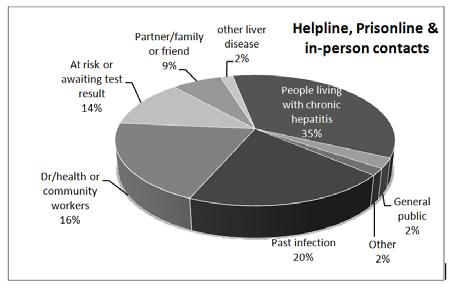
Hepatitis C was the primary reason for 224 contacts, hepatitis B accounted for 57 contacts, and the remaining
queries related to hepatitis A, combined hepatitis B and C or other liver diseases.

Prisonline
Hepatitis SA offers a free call information and support service to all SA prisoners during business hours. We received a total of six calls, considerably lower than in previous years (a trend post DAA PBS listing). All contacts were from the primary target groups and four made contact for the first time.
In-person
Thirty-six people accessed information in person. All were from the primary target groups and resided in the metropolitan area. Six were clients new to the service. Equal numbers sought information (17) and emotional support (17) and two were discrimination focused. Four were considering or about to start treatment, three were on treatment or in the follow up period and one was being retreated after relapse. Workers disclosed their lived experience of hepatitis to 20 of these clients.
Support groups
Calming the C support groups are peer-based information and support sessions facilitated by Hepatitis SA. Support groups provide a safe and welcoming
12
environment in which to share and explore concerns with people who ‘get it’. The groups discuss issues relating to diagnosis, treatment, living with advanced liver disease and anything else that members may confront. With a mixture of education and support, we endeavour to empower people to build their self-efficacy, motivating people to communicate and assert themselves effectively in order to obtain the best possible health outcomes. Confidentiality and respect for others is strictly observed in the groups and a light lunch is provided. There are currently two groups in metropolitan Adelaide that meet every 8 weeks at our Hackney office and Wonggangga Turtpandi at Port Adelaide.
What people said about the service
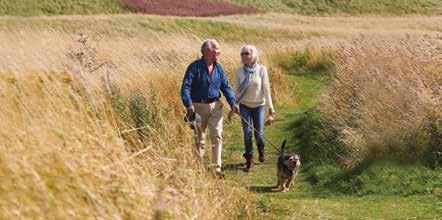
• “You have answered all my questions and said the same as what my son told me—I feel reassured.”
• “Thank you so much for your help, I really appreciate it.”


• “Excellent service—your organisation does great work.”
• “It’s really helped talking to you, I feel so much better now.”
• “Oh, you were more help than the bloody docs.”
• “Thank you so much, I can’t believe I didn’t know about the new treatments.”
Deborah Warneke-Arnold Coordinator
Hepatitis C Treatment Peer Education Project
Hepatitis C Treatment Peer Educators used their lived experience of hepatitis C and hepatitis C treatments to engage people and provide them with information, education, and support. Throughout 201819, the program provided services to a total of 1,049 individuals and addressed 512 people at 9 group sessions.
They also engaged 549 people in custodial
settings across the state, in conversations about hepatitis C. This included participation in 5 Liver Health Days in adult correctional centres, in partnership with SA Prison Health (SAPHS) and the community viral hepatitis nurses. On these days, the peers engaged the prisoners, then referred them on to SAPHS staff for testing and to the viral hepatitis nurses for fibroscans. A total of 99 prisoners were provided with fibroscans at Cadell Training Centre, Mobilong
13
SAFE TREATMENTS CAN CURE HEPATITIS C LIVE FREE FROM THE WORRY OF HEP C LIVER HEALTH DAY Thursday, 21 March 9.30am–4pm The Mawson Centre Rooms MC 2.16 and MC 1.30 For bookings call Lisa on 8362 8443 For more info call 1800 437 222 or visit testcurelive.com.au
NEW
Prison (twice), Port Lincoln Prison and Yatala Labour Prison Liver Health Days.
At homelessness services, the peer educators spoke with 136 people about hepatitis C. Some of the comments from those people who said that they had recently completed hepatitis C treatment included:
• “I did the Rx here (Hutt St) because of you guys. All cured. Treatment was easy, no side effects.”
• “I did the treatment and it worked and my liver was not too bad. I don’t inject anymore so won’t be getting it again.”

This year the peer educators also commenced sessions at Community Mental Health Services in the North and East in partnership with the viral hepatitis nurses. Peer educators engaged with 98 patients about hepatitis C in the waiting area at these services, informing them of the opportunity for HCV assessment and support from the visiting
viral hepatitis nurse. Many of these patients were not aware of the risks of hepatitis C, and the mental health staff lacked the skills and knowledge to follow up their HCV status. This was exemplified by one patient who had never been tested for HCV, despite being hospitalised on multiple occasions, openly disclosing injecting and having visible ‘backyard’ tattoos on his face. He was able to be followed up appropriately by the viral hepatitis nurse attending that day. An important part of this initiative was to increase the skills and knowledge of mental health staff in their response to patients with HCV. To this end, the Hepatitis SA education team also offered viral hepatitis education to mental health staff teams and there was a high level of uptake in response.
Central DASSA Services, Noarlunga, Port Adelaide & Elizabeth CNP sites were also attended by peer educators to provide HCV information, support and referral. All sites included the provision of a fibroscan clinic once per month by a community viral hepatitis nurse. The peer educators recorded a total of 182 client contacts at these CNP sites. At these locations, 63% of people who engaged disclosed that they were at risk of hepatitis C and were provided with harm reduction information along with appropriate referrals, and 21 people received a fibroscan.
The peers also attended other community awareness raising events during the year, which included an Anti-poverty Week event attended by 160 people. At this event the peer educators engaged with 80 of those people, and below are some comments recorded by those interacting with the peers:
• “I’m so glad you chose me to speak to, I thought the treatment was still Interferon.”
• “I had a dodgy tattoo, never been tested”
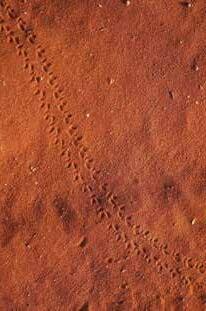

• “I was treated [for HCV] in prison. Might have shared by accident—didn’t know I could get re-treated”
• “I’m not sure if I’ve been at risk. What are the symptoms?”
• “I got a tattoo in Bali.”
All were followed up with referrals for testing and treatment, as required.
Lisa Carter Coordinator
14
Is your liver healthy? Book a scan today! Liver Clinic • Aboriginal Family Clinic Noarlunga • Every 2nd Tuesday • 11am–2pm Appointments can be booked at the desk or by ringing 8384 9577.
Total revenue for Hepatitis SA for 2018-2019 was $2,052,670. This was made up from grant income which was the net result of 12 months recurrent funding for the financial year for the following grants from SA Health - $929,926 for the SA Viral Hepatitis Prevention and Workforce Development Project; $511,944 for the Clean Needle Program Peer Project; $132,980 for the CNP Transitional Sessional Peer Education Project; and $181,499 for the Enhanced Peer Project. Included in grant income from SA Health, was $215,162 Social and Community Services supplementation as a contribution to the costs for the Equal Remuneration Order.
Other income included $11,894 interest; $44,149 in recoupments, being
Treasurer’s Report

mainly cost recovery for the full range of Clean Needle Program equipment distributed in South Australia and reimbursement from Hepatitis Australia for the costs of the Test.Cure.Live campaign in South Australia, and Sundry Income totaling $25,166 which included sponsorship from AbbVie, profit on sale of assets, donations and fund raising distribution .
Total expenditure for the year was $2,035,802. The major expense was the Employee Benefits expense of $1,757,084 comprised of Salaries and Wages of $1,516,731 and On-costs of $240,353.
Other large expenses were Premises Rent and On-costs of $105,978, Office expenses of $76,562 as well as Other expenses of $58,358 which were comprised of Program costs of $53,262 and Other
staff costs of $5,096.
Motor vehicle expenses were $8,928, Travel and accommodation was $15,118, and the Depreciation and amortisation expense was $13,774.
For the 2018-2019 financial year, Hepatitis SA had a surplus of $16,868 resulting in total equity of $283,450 as at 30 June 2019.
Hepatitis SA would like to thank our donors and sponsors, as well as the STI and BBV Section at the South Australian Department for Health and Wellbeing and Drug and Alcohol Services South Australia for administering Hepatitis SA’s major recurrent funding during the 2018-2019 financial year.
Larkin Treasurer
15
Michael
17 18 19-22 23 24 25 26-27

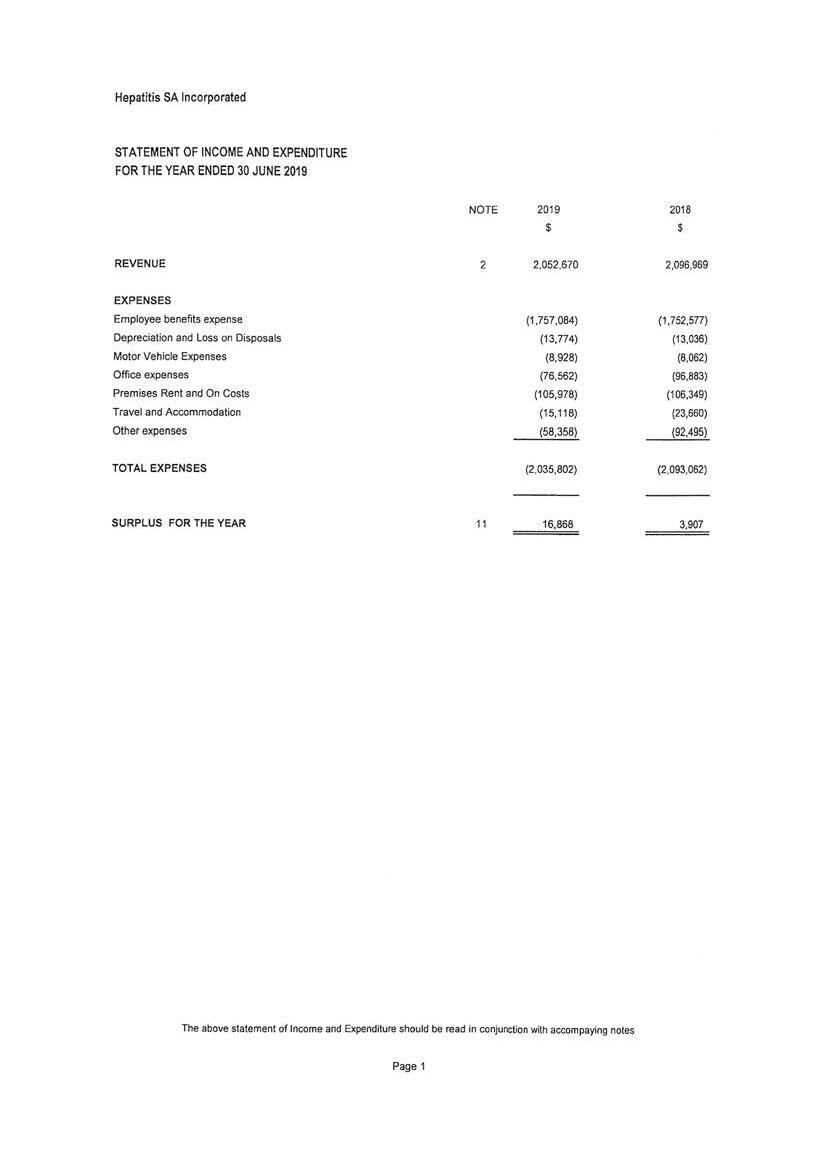
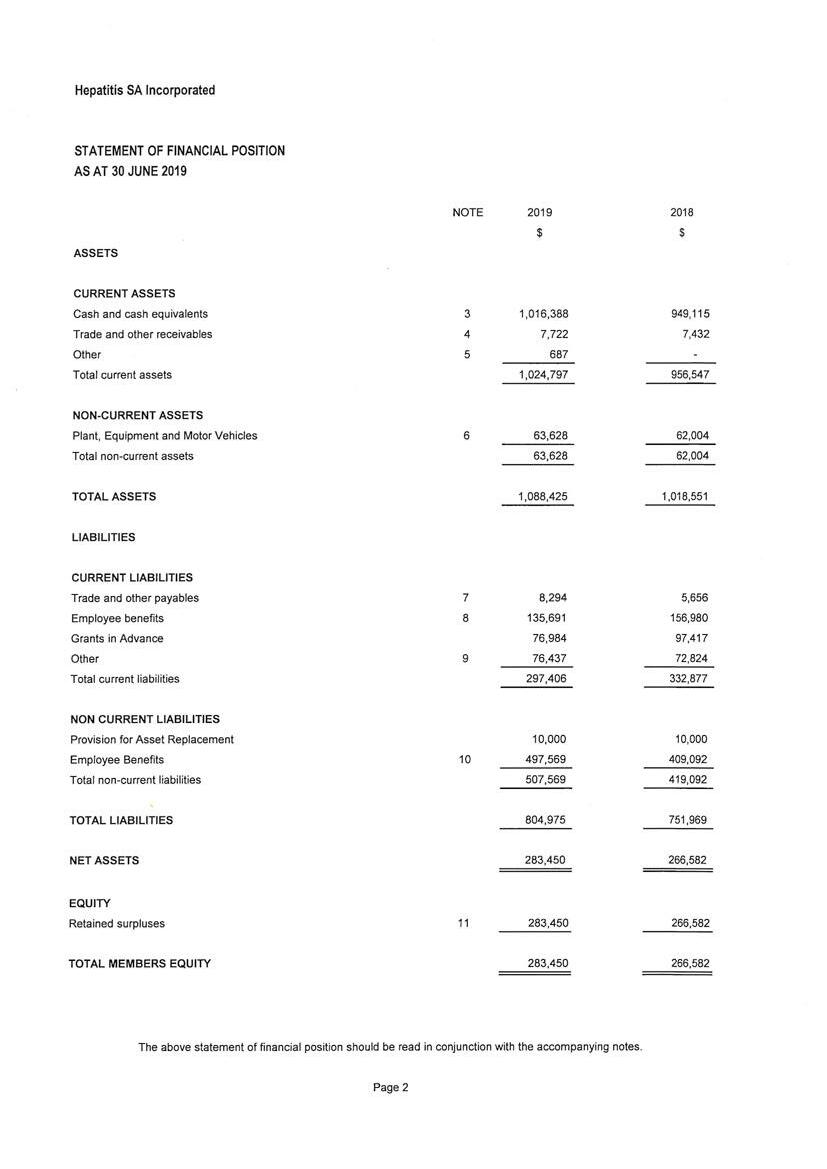
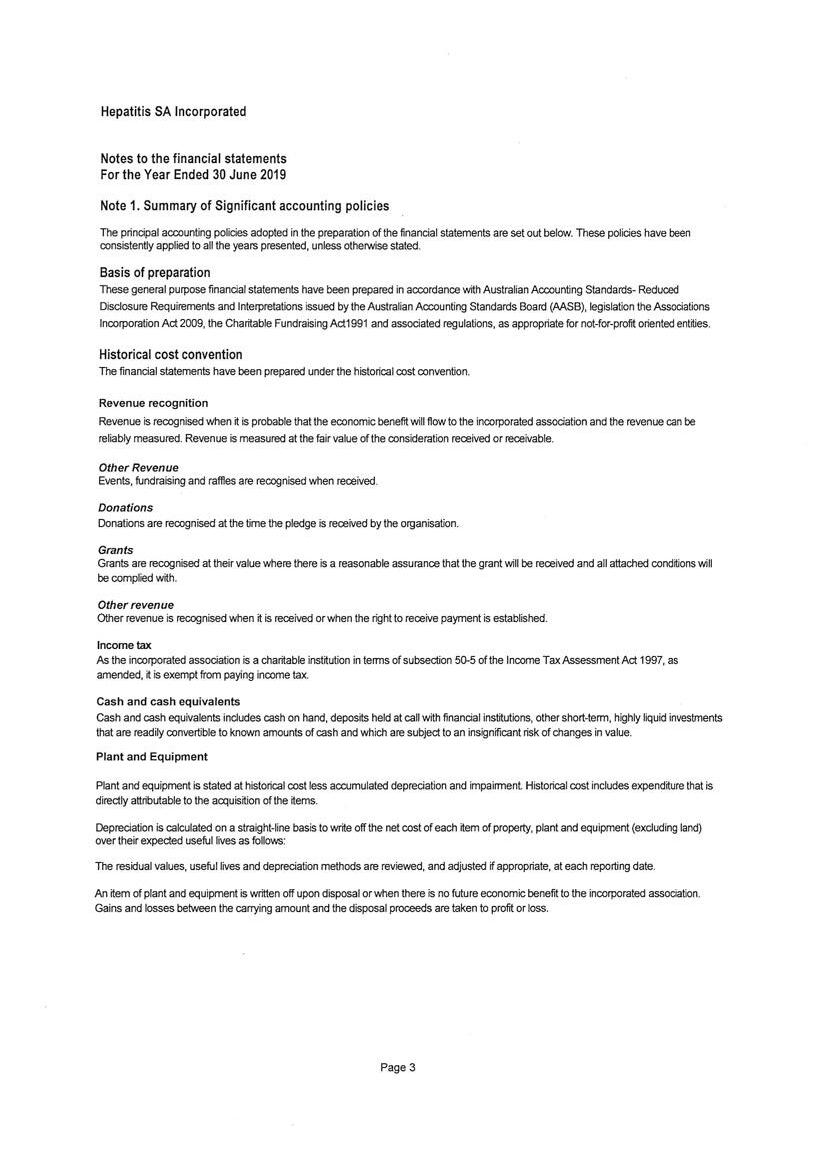
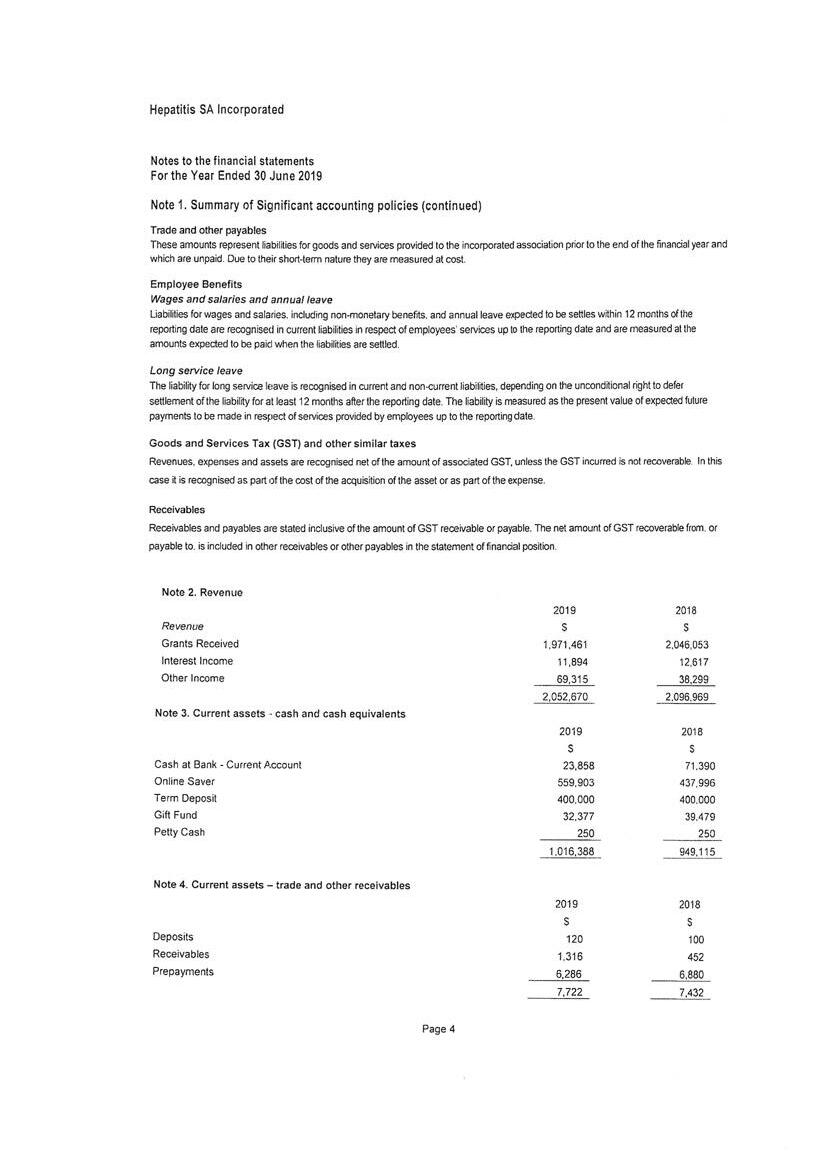
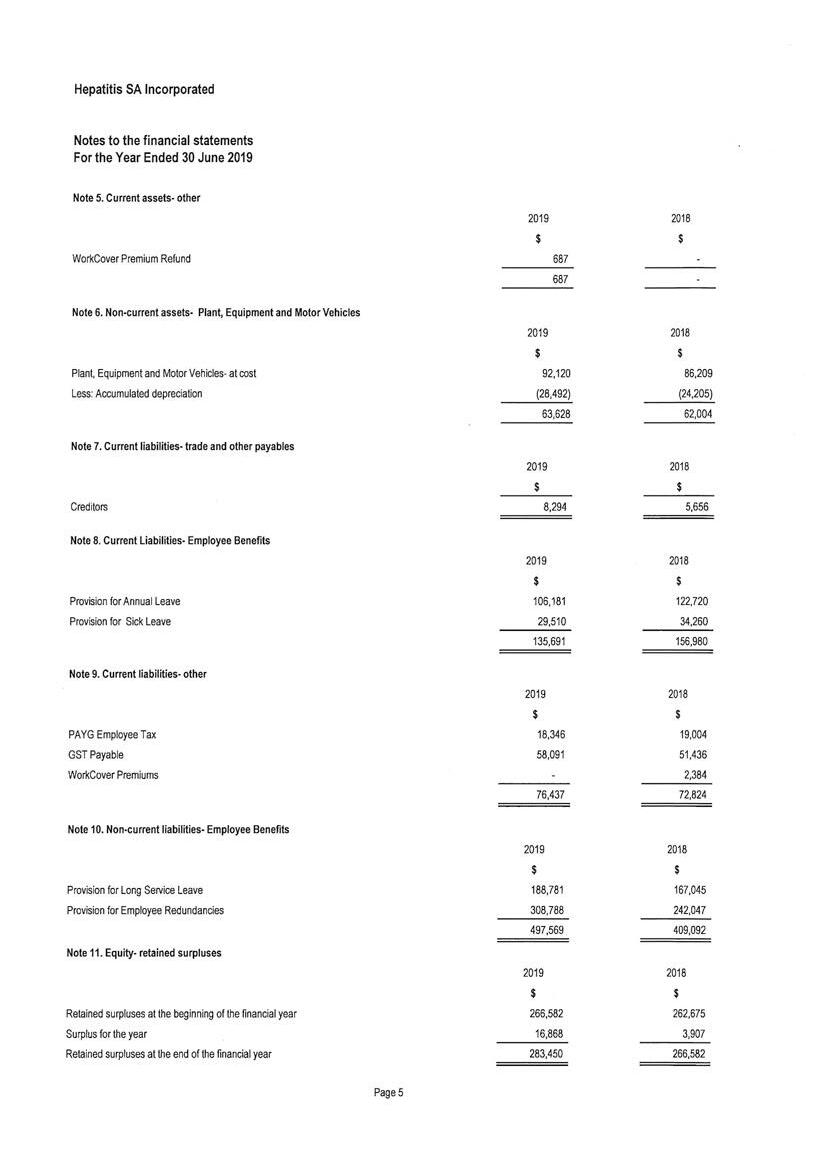
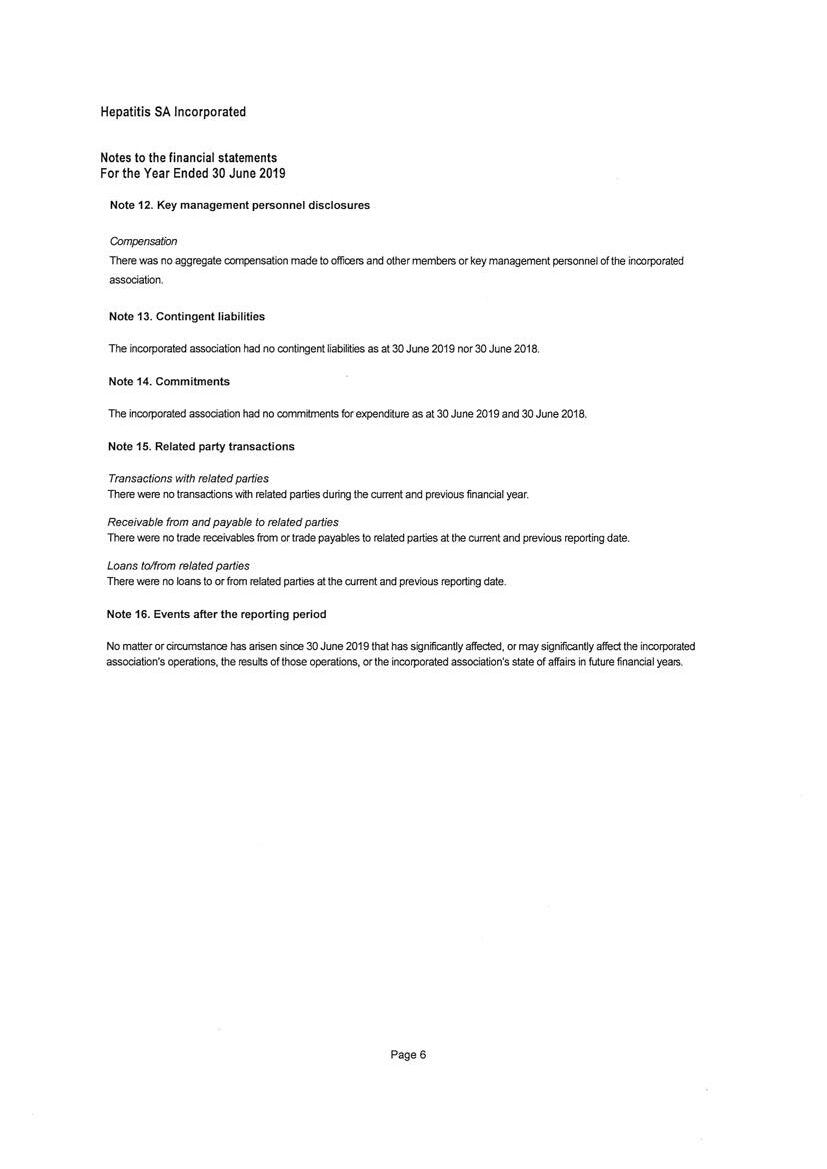
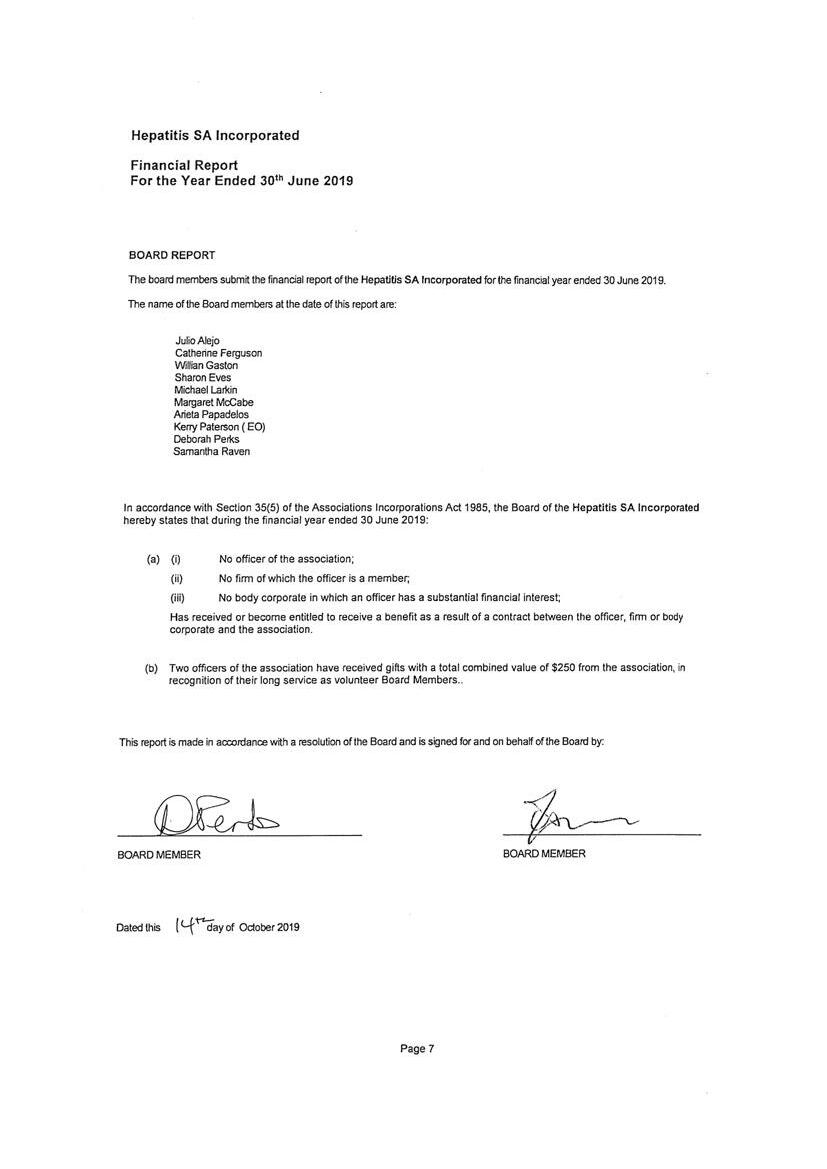
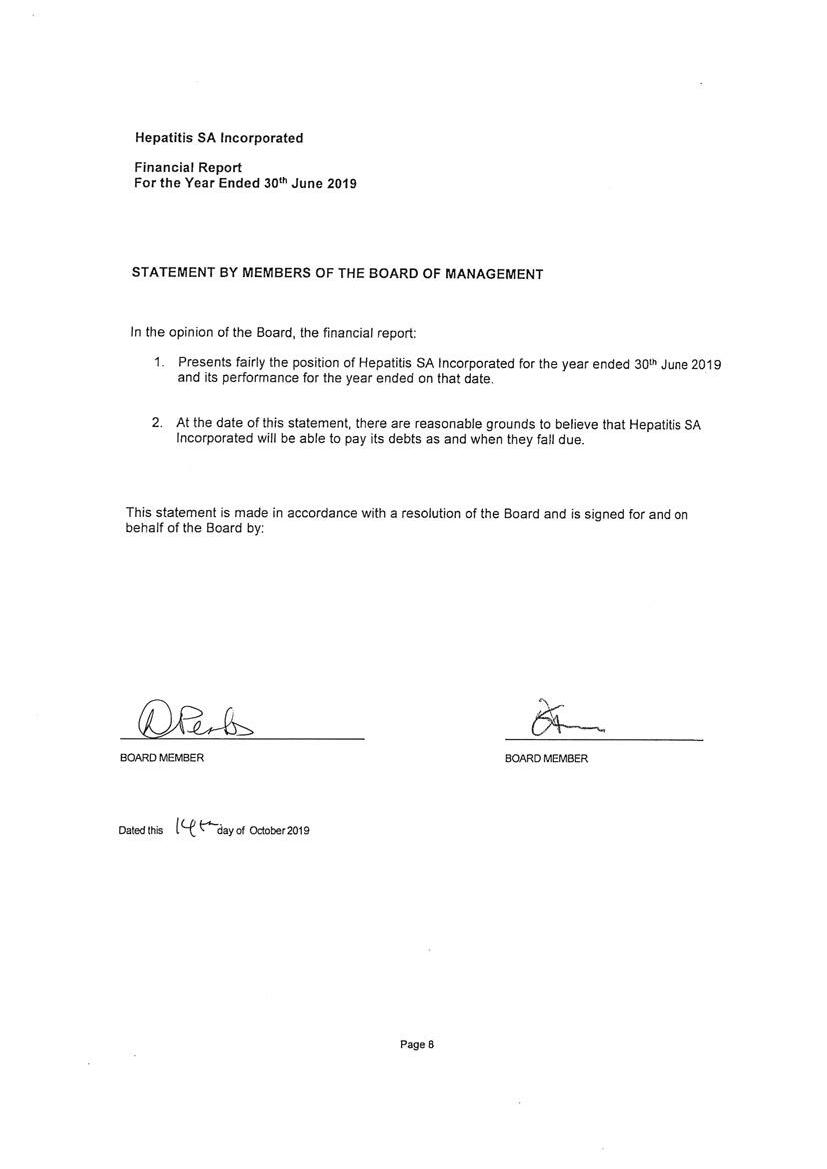
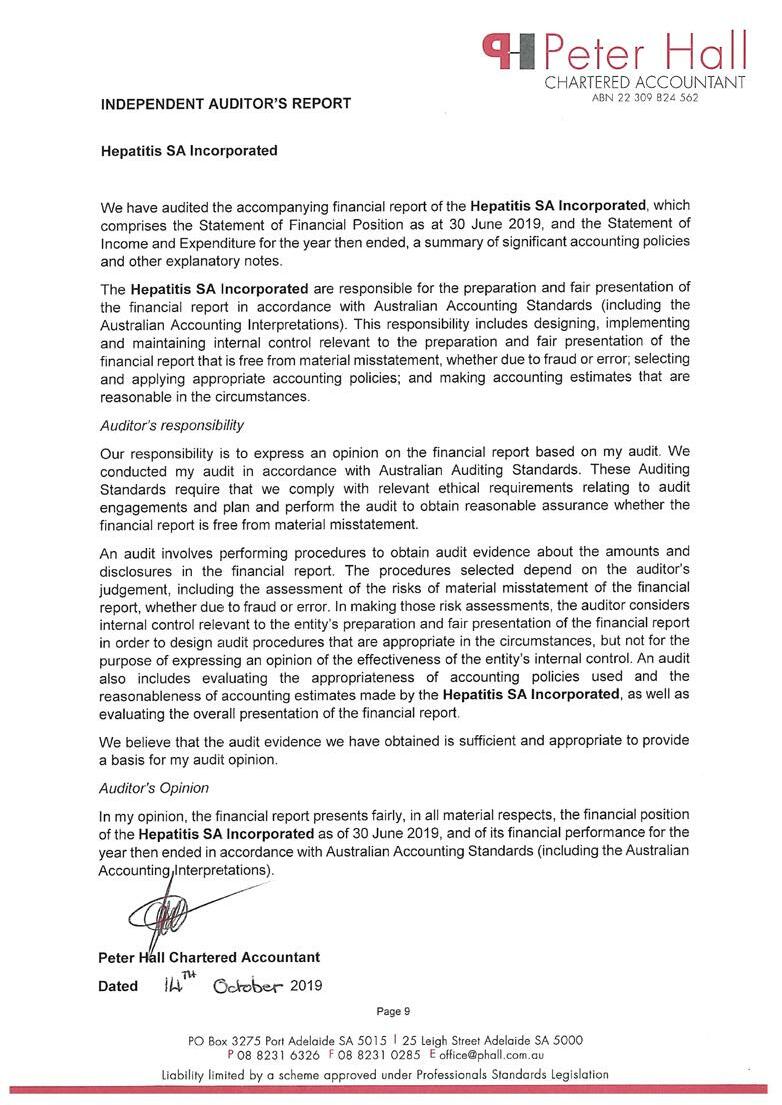
25



































